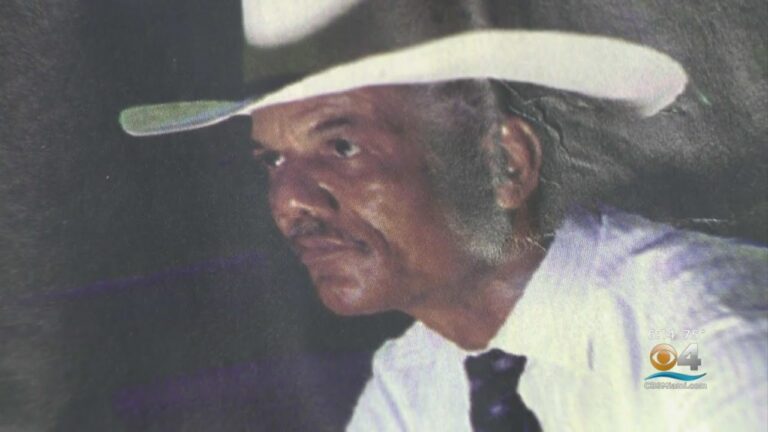
David Lynch is one of the most distinctive filmmakers of the modern era. His works blur the lines between reality and dreams, often leaving audiences with more questions than answers. With a career spanning decades, Lynch’s storytelling approach is unparalleled—combining surrealism, psychological horror, and a deep exploration of the subconscious. His unique vision has made him a cult icon among cinephiles, and today, we celebrate his genius by revisiting some of his most iconic works.
Eraserhead (1977) – The Birth of a Surrealist Visionary
Lynch’s feature film debut, Eraserhead, is a deeply unsettling experience that immediately set him apart from conventional filmmakers. Shot in stark black and white, the film presents a haunting dreamscape filled with grotesque imagery, industrial noise, and nightmarish symbolism. The plot follows Henry Spencer, a nervous young man who discovers he has fathered a monstrous, deformed baby. The film is a disturbing meditation on fatherhood, anxiety, and the unknown horrors of existence.
Many cinephiles consider Eraserhead one of the purest expressions of Lynch’s style. Its ambiguous narrative and unsettling mood make it a hypnotic experience, inviting endless interpretations. The film’s industrial setting, combined with Lynch’s signature sound design, creates a claustrophobic and suffocating atmosphere that lingers in the viewer’s mind long after the credits roll.
The Elephant Man (1980) – A Masterful Human Drama
Following the surreal horror of Eraserhead, Lynch surprised audiences with The Elephant Man, a deeply emotional and compassionate film based on the real-life story of Joseph Merrick (renamed John Merrick in the film). Anthony Hopkins plays Dr. Frederick Treves, who rescues the severely deformed Merrick (John Hurt) from a life of exploitation.
Unlike Lynch’s later, more surrealist works, The Elephant Man is a straightforward narrative film, yet it retains his signature visual style. The use of black and white cinematography gives the film a dreamlike quality, while Lynch’s ability to humanize Merrick’s plight makes it one of the most moving films of his career. This film also solidified Lynch as a mainstream director, earning him multiple Academy Award nominations and proving he could blend his avant-garde sensibilities with traditional storytelling.
Blue Velvet (1986) – Peering Into the Darkness Beneath Suburbia
If Eraserhead introduced Lynch’s surrealism and The Elephant Man showcased his emotional depth, Blue Velvet revealed his fascination with the dark underbelly of American society. The film follows college student Jeffrey Beaumont (Kyle MacLachlan) as he stumbles upon a severed ear in his idyllic hometown. His curiosity leads him into a dangerous world of corruption, sexual deviance, and violence.
At the heart of the film is Dennis Hopper’s terrifying performance as Frank Booth, one of the most sadistic villains in cinema history. Blue Velvet is a perfect example of Lynch’s ability to juxtapose the ordinary with the nightmarish—small-town Americana meets pure horror. The film is unsettling yet mesmerizing, filled with haunting imagery and unforgettable moments. Cinephiles consider Blue Velvet a landmark in Lynch’s career, a film that fully embraces his artistic vision while remaining accessible enough to reach a wide audience.
Twin Peaks (1990-1991, 2017) – Television Redefined
Though not a film, Twin Peaks deserves a special mention as one of Lynch’s most beloved and influential works. When it debuted in 1990, television had never seen anything quite like it. A mix of murder mystery, soap opera, and supernatural horror, Twin Peaks captivated audiences with its eccentric characters and cryptic storytelling.
The show follows FBI agent Dale Cooper (Kyle MacLachlan) as he investigates the murder of high schooler Laura Palmer. However, what starts as a procedural crime drama quickly evolves into something much stranger, with Lynch injecting the series with dream sequences, bizarre humor, and an ever-growing sense of unease.
The original run of Twin Peaks was cut short, but Lynch returned in 2017 with Twin Peaks: The Return, a haunting 18-episode continuation that pushed the boundaries of storytelling even further. This revival was a surreal, challenging experience, proving that even decades later, Lynch remained as unpredictable and innovative as ever.
Lost Highway (1997) – A Psychological Puzzle
By the late ‘90s, Lynch had fully embraced the idea of fragmented, nonlinear storytelling, and Lost Highway is one of the best examples of this. The film follows a jazz musician (Bill Pullman) who is accused of murdering his wife, only to suddenly transform into a completely different person. This strange narrative shift is never explicitly explained, making the film an enigma that fans continue to analyze to this day.
Lost Highway is filled with Lynch’s signature elements—mysterious figures, eerie VHS tapes, and a sense of reality breaking apart. The film’s dark, dreamlike atmosphere and mind-bending plot make it a favorite among those who enjoy Lynch’s more abstract works.
Mulholland Drive (2001) – A Dream or a Nightmare?
Considered by many as Lynch’s masterpiece, Mulholland Drive is an intoxicating blend of Hollywood noir, dream logic, and psychological horror. Originally conceived as a television pilot, the film follows aspiring actress Betty Elms (Naomi Watts) as she arrives in Los Angeles and becomes entangled in a mystery involving an amnesiac woman.
What starts as a conventional detective story soon dissolves into an abstract, emotionally charged experience that explores themes of identity, obsession, and the illusion of Hollywood glamour. The film’s final act is famously cryptic, leaving viewers to piece together its meaning through scattered clues. Cinephiles often rank Mulholland Drive as one of the greatest films of all time, thanks to its hypnotic storytelling and deeply unsettling mood.
Inland Empire (2006) – Lynch at His Most Experimental
If Mulholland Drive was Lynch pushing the boundaries of conventional storytelling, Inland Empire shattered them entirely. Shot entirely on digital video, the film stars Laura Dern as an actress who begins to lose her grip on reality. The three-hour-long movie is a fever dream of overlapping narratives, nightmarish imagery, and a complete disregard for linear storytelling.
While Inland Empire is one of Lynch’s most challenging works, it remains a fascinating exploration of identity, performance, and the nature of dreams. It is the ultimate test for any Lynch fan—an uncompromising descent into his subconscious mind.
Legacy and Influence
David Lynch’s impact on cinema is immeasurable. His ability to blend surrealism with emotional depth has influenced countless filmmakers, from Christopher Nolan to Denis Villeneuve. His unique storytelling style has expanded what audiences expect from film and television, proving that art doesn’t need to be conventional to be powerful.
Even though Lynch has largely stepped away from feature filmmaking, his legacy continues through his past works, inspiring new generations of cinephiles to embrace the weird, the unsettling, and the beautifully strange. His films remind us that cinema is more than just entertainment—it is a gateway into the unknown, a place where dreams and nightmares collide.






